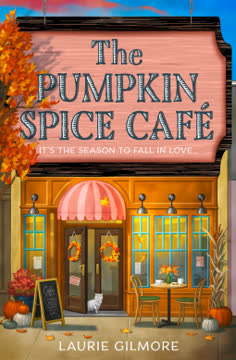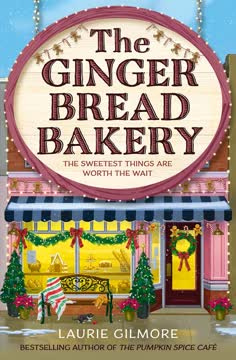Plot Summary
Unexpected Fatherhood Unfolds
Archer Baer, a driven chef with dreams of Michelin stars, is blindsided by the news that he has a five-year-old daughter, Olive, after her mother's sudden death. Thrust into the quaint, nosy town of Dream Harbor, Archer is forced to confront a life he never imagined—one filled with small-town charm, judgmental neighbors, and the daunting responsibility of parenthood. As he meets Olive for the first time, his confidence falters; she's terrified of him, and he's equally lost. The town's expectations and his own grief over lost time with Olive's mother, Cate, weigh heavily. Archer's journey begins not with certainty, but with a shaky promise to try, setting the stage for a story of unexpected family and second chances.
Small Town, Big Changes
Archer's arrival in Dream Harbor is met with skepticism and curiosity. The town's routines—Easter egg hunts, floral wreaths, and neighborly check-ins—are a far cry from his Parisian nights. He's quickly swept into the local diner scene, where he's offered a job as a cook, a far cry from his culinary ambitions. Meanwhile, Olive remains withdrawn, hiding behind couches and refusing to speak. Archer's attempts to connect are awkward, and the town's watchful eyes only add pressure. Yet, beneath the surface, the seeds of community and belonging are planted, hinting at the possibility of transformation for both Archer and Olive.
The Reluctant Nanny
Iris Fraser, a free-spirited yoga instructor with a patchwork career, is struggling to make rent. When offered a live-in nanny position for Olive, she's hesitant—children, in her view, are sticky and unpredictable. But the promise of stability and a place to stay is too tempting. Her first encounters with Archer are chaotic and charged, marked by spilled smoothies and mutual annoyance. Despite her lack of experience, Iris's warmth and humor begin to chip away at Olive's defenses. The arrangement is uneasy, but the trio is set on a collision course toward something resembling family.
Pancakes and Panic
Archer's new role at the local diner is anything but glamorous. His attempts to elevate the menu are met with resistance—especially when he dares to change the beloved pancake recipe. Meanwhile, at home, Olive's silence persists, and Archer's confidence as a father wavers. Iris, too, is finding her footing, navigating the minefield of childcare and her growing attraction to Archer. The kitchen becomes a battleground for both culinary and emotional breakthroughs, as each character grapples with their own insecurities and the weight of new responsibilities.
Building a New Family
Slowly, cracks appear in Olive's shell. With Iris's playful approach—tea parties, baking shows, and gentle persistence—Olive begins to speak, at first only to Iris, then gradually to Archer. The trio starts to form routines: shared meals, bedtime stories, and moments of laughter. The town's women, ever-present with casseroles and advice, become an unofficial support system. Archer, once desperate to return to Paris, finds himself invested in Olive's happiness and Iris's presence. The sense of found family, though fragile, begins to take root.
Kitchen Confessions
The kitchen becomes the heart of the home, a place for late-night confessions and accidental intimacy. Archer and Iris, both insomniacs in their own way, find themselves drawn together over failed pancake experiments and shared vulnerabilities. Their banter is laced with longing, but both are wary—Archer of repeating past mistakes, Iris of entanglement. Yet, as they open up about their fears and dreams, the boundaries between employer and employee blur, and the possibility of something deeper simmers beneath the surface.
Pancake Wars Begin
Archer's quest to perfect the diner's pancakes becomes a metaphor for his struggle to fit into Dream Harbor. The townsfolk are fiercely protective of their traditions, and Archer's "elevated" recipes are met with outrage. Community meetings devolve into debates about the soul of the diner, and Archer is forced to confront his own arrogance. With Iris's encouragement, he learns to listen—to the town, to Olive, and to his own heart. The pancake wars, both comic and poignant, push Archer toward humility and connection.
Olive's Silent Struggles
Olive's journey is one of quiet courage. Traumatized by her mother's death and uprooted from everything familiar, she retreats into silence and routine. Through Iris's patient care and Archer's growing tenderness, Olive begins to trust again. Her small acts—naming stuffed animals, sharing secrets, asking for pancakes—become milestones. The story honors the complexity of childhood grief, showing how healing is neither linear nor easy, but possible with love and patience.
Community and Casseroles
Dream Harbor's residents, from retired teachers to book-club presidents, insert themselves into Archer and Olive's lives with relentless kindness. Their casseroles, advice, and gentle meddling create a safety net for the fledgling family. The town's collective memory and traditions become both a challenge and a comfort, teaching Archer and Iris that belonging is built through shared struggles and celebrations. The community's embrace is both comic relief and emotional ballast.
Late-Night Temptations
As Archer and Iris grow closer, their mutual attraction becomes harder to ignore. Late-night kitchen encounters, accidental touches, and confessions of vulnerability lead to a slow-burning romance. Both are haunted by past disappointments and the fear of hurting Olive. When they finally give in to their feelings, it's with a mix of joy and trepidation. Their relationship, forged in the crucible of shared responsibility, is tested by secrets, misunderstandings, and the ever-present gaze of the town.
Finding Comfort in Chaos
The new family faces setbacks—illness, sleepwalking, and the chaos of daily life. Iris's unconventional approach to caregiving, Archer's perfectionism, and Olive's unpredictable needs create both comedy and conflict. Yet, through each crisis, their bonds strengthen. The story doesn't shy away from the messiness of love and parenting, showing that comfort is found not in perfection, but in showing up for each other, again and again.
The Town's Watchful Eyes
As Archer and Iris's relationship deepens, they must navigate the town's gossip and the legal complexities of Olive's custody. The line between public and private life blurs, and every choice feels fraught with consequence. The community's expectations, once a source of pressure, become a mirror for Archer and Iris's own hopes and fears. The question of what makes a family—blood, choice, or something in between—comes to the fore.
Progress and Setbacks
Just as the family finds its rhythm, old insecurities and new challenges arise. Archer's fear of failure, Iris's doubts about motherhood, and Olive's lingering grief threaten to unravel their progress. A moment of crisis—Olive's disappearance at the Strawberry Festival—forces everyone to confront their deepest fears. The aftermath is a reckoning, as Iris flees, convinced she's unfit for the family she's come to love.
Hearts on the Line
In the wake of her departure, Iris grapples with guilt, longing, and an unexpected pregnancy. Supported by friends, she confronts her fears about commitment and motherhood. Archer, devastated but determined, focuses on Olive, learning to be a single parent and finding pride in his new life. Both must decide what they truly want—and whether they have the courage to fight for it.
Strawberry Festival Revelations
The Strawberry Festival, a symbol of community and renewal, becomes the backdrop for reconciliation. Iris returns, ready to claim her place in Archer and Olive's lives. The truth of her pregnancy brings both fear and hope, but this time, the family chooses each other. The town, once skeptical, now celebrates their union, and the diner—reborn as The Strawberry Patch Pancake House—becomes a symbol of their journey.
Lost and Found
The family's reunion is marked by honesty, forgiveness, and a commitment to facing the future together. Archer and Iris, both changed by their trials, embrace the messiness of love and parenting. Olive, once silent and lost, finds her voice and her place in a family that is imperfect but real. The story affirms that home is not a place, but the people who choose to love you, flaws and all.
Love, Loss, and Letting Go
Archer, once obsessed with culinary perfection, finds fulfillment in the simple joys of family and community. Iris, once afraid of commitment, discovers strength in vulnerability and the courage to love deeply. Together, they learn that letting go of old dreams can make room for new, unexpected happiness. The past is honored, but the future is embraced with open arms.
Coming Home
The story ends with the birth of Archer and Iris's child, the family gathered in love and laughter. The diner thrives, the town celebrates, and the once-lost chef finds his true calling—not in Michelin stars, but in the smiles of his children and the warmth of a home built on second chances. The journey, marked by loss and longing, culminates in a hard-won, deeply felt joy—a testament to the power of love, resilience, and community.
Characters
Archer Baer
Archer begins as a perfectionist chef, defined by ambition and a carefully controlled life. The revelation of his daughter, Olive, shatters his plans and exposes his vulnerabilities. Initially awkward and emotionally distant, Archer's journey is one of gradual softening. His relationship with Olive is fraught with guilt and uncertainty, but his determination to do right by her drives his growth. Through Iris's influence and the town's support, Archer learns humility, patience, and the value of imperfection. His arc is a study in letting go—of old dreams, of control, and of fear—ultimately embracing love, fatherhood, and community as his true sources of fulfillment.
Iris Fraser
Iris is a patchwork of contradictions: creative, restless, and fiercely independent, yet deeply compassionate. Her initial aversion to children masks a fear of commitment and inadequacy, rooted in a transient upbringing. As Olive's nanny, she brings playfulness and warmth, slowly earning the child's trust. Her romance with Archer is both a catalyst and a crucible, forcing her to confront her own desires and limitations. Iris's journey is one of self-discovery—learning that love is not about perfection, but about showing up, even when afraid. Her eventual embrace of motherhood and partnership is hard-won, making her transformation all the more poignant.
Olive Carpenter
Olive is the emotional heart of the story—a child rendered mute by loss, navigating a world that feels unsafe and unfamiliar. Her silence is both a shield and a cry for help. Through Iris's gentle persistence and Archer's growing tenderness, Olive begins to heal, finding her voice and her place in a new family. Her journey is marked by small, significant victories: a spoken word, a shared laugh, a hand held. Olive's resilience and capacity for joy, even after trauma, embody the story's central message of hope and renewal.
Cate Carpenter
Though deceased, Cate's influence permeates the narrative. Her choices—concealing Olive's paternity, building a life in Dream Harbor—set the story in motion. Cate is remembered as loving and self-sacrificing, but also flawed and human. Her absence is a source of pain and longing for both Archer and Olive, but also a space for new bonds to form. Cate's memory is honored not by erasure, but by the family's willingness to love again.
Gladys
Gladys is the embodiment of small-town wisdom and meddling. As the owner of the diner, she provides both employment and emotional support to Archer and Iris. Her matchmaking is both comic and crucial, nudging the protagonists toward each other and toward the community. Gladys represents the best of Dream Harbor: resilient, nurturing, and unafraid to get involved.
Paula Carpenter
Paula, Olive's maternal grandmother, is a figure of stability and sorrow. Her declining health and deep love for Olive add urgency to Archer's journey. Paula's willingness to let Olive go, trusting Archer to step up, is an act of profound love and courage. She embodies the sacrifices and quiet strength of those who put children's needs above their own.
Kaori Kim
Kaori is both a legal authority and a community member, balancing professionalism with personal investment. Her role is to ensure Olive's best interests, but she also serves as a mirror for Archer and Iris, challenging them to rise to the occasion. Kaori's presence underscores the story's themes of accountability and collective care.
The Dream Harbor Community
The townsfolk—retired teachers, book-club members, diner regulars—are both comic relief and emotional ballast. Their gossip, casseroles, and relentless involvement create both obstacles and opportunities for the protagonists. The community's embrace is a reminder that healing and belonging are communal acts, not solitary achievements.
Bex
Bex is Iris's cousin and emotional anchor, offering both tough love and unwavering support. Her own unconventional life provides a counterpoint to Iris's fears, and her presence is a reminder that family is chosen as much as given.
The New Nanny (Will)
Will's brief tenure as Olive's nanny highlights the irreplaceable bonds formed between Archer, Iris, and Olive. His competence is a comfort, but his presence underscores what is lost when love is absent from caregiving.
Plot Devices
Found Family and Second Chances
The narrative is structured around the idea that family is not just blood, but choice and effort. Archer, Iris, and Olive are all, in their own ways, adrift—marked by loss, fear, and disappointment. Their coming together is neither easy nor inevitable; it is the result of small, persistent acts of care and vulnerability. The story uses the trope of "found family" to explore themes of healing, belonging, and the courage to love again.
Food as Metaphor and Connection
Archer's quest to perfect the diner's pancakes is a recurring motif, symbolizing his struggle to fit into Dream Harbor and to connect with Olive. The kitchen is both battleground and sanctuary, a place where boundaries blur and truths are revealed. Food becomes a language of love, apology, and hope—a way to nourish not just bodies, but relationships.
Community as Character
Dream Harbor is more than a backdrop; it is an active participant in the story. The town's traditions, gossip, and collective memory create both obstacles and opportunities for the protagonists. Community meetings, festivals, and casseroles serve as narrative devices to bring characters together, force confrontations, and catalyze change.
Alternating Perspectives and Intimate Voice
The story alternates between Archer and Iris's perspectives, allowing readers to inhabit their fears, hopes, and desires. This structure creates intimacy and empathy, making their eventual union feel earned and inevitable. The use of close third-person narration, laced with humor and vulnerability, invites readers to root for flawed, relatable characters.
Foreshadowing and Symbolism
The story employs foreshadowing—Olive's early silence, the town's resistance to change, Iris's fear of commitment—to build tension and emotional payoff. Symbols like pancakes, casseroles, and the Strawberry Festival serve as touchstones for transformation and renewal.
Analysis
Laurie Gilmore's The Strawberry Patch Pancake House is a heartfelt exploration of what it means to build a family from the fragments of loss and longing. At its core, the novel is a meditation on second chances—at love, at parenthood, at belonging. Through the intertwined journeys of Archer, Iris, and Olive, Gilmore examines the messiness of real life: the ways grief lingers, the courage required to trust again, and the beauty found in imperfection. The story resists easy answers, honoring the slow, nonlinear process of healing and the necessity of community in that journey. Food, with its rituals and comforts, becomes both metaphor and medium for connection. The novel's humor, warmth, and emotional honesty make it a standout in the genre, offering readers not just a romance, but a blueprint for hope. Ultimately, Gilmore suggests that home is not a place, but the people who choose to love you—again and again, pancakes and all.
Last updated:
Review Summary
The Strawberry Patch Pancake House receives mixed reviews, with an average rating of 3.90 out of 5. Many readers find it a cute, cozy small-town romance with likable characters and a sweet single dad x nanny trope. Fans praise the comfort and charm of Dream Harbor, while critics note a lack of depth and character development. Some readers love the slow-burn romance and found family aspects, while others find the plot predictable. The book's spicy scenes and pancake-centric storyline are frequently mentioned, with opinions divided on their effectiveness.
Dream Harbor Series
Similar Books
Download PDF
Download EPUB
.epub digital book format is ideal for reading ebooks on phones, tablets, and e-readers.



















